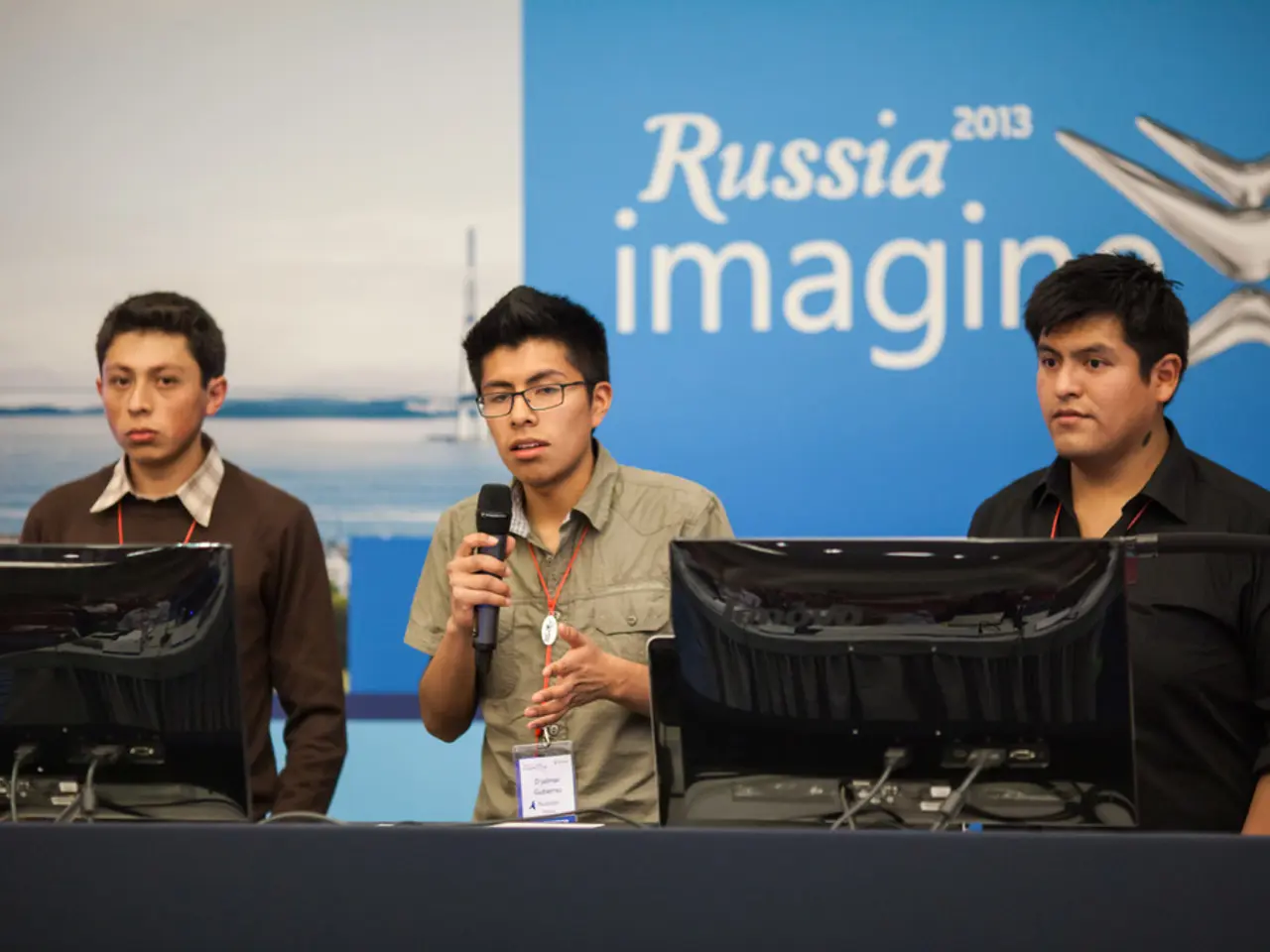Foreign universities in Denmark refuse to accept international researchers due to concerns about potential espionage activities
In recent developments, Danish universities have been increasingly rejecting foreign researchers, particularly those from Russia, Iran, and China, due to heightened concerns over espionage threats. This trend follows official guidance from Danish authorities and reflects a broader shift in academic security policy.
The Danish Emergency Management Agency and the Danish Agency for Cyber and Infrastructure Security have both issued reports stating that the risk of cyber espionage and cybercrime targeting Danish universities is very high. These agencies specifically highlight foreign nations, including Russia, Iran, and China, as posing significant risks in this context.
The rejections are not arbitrary but follow recommendations from the Danish Ministry of Higher Education and Science, which has urged universities to implement stricter vetting processes for researchers from countries deemed high-risk for espionage. This aligns with broader European and Western concerns over intellectual property theft and the potential for academic collaboration to be exploited for state-sponsored intelligence gathering.
Aarhus University, for instance, has already acted on these concerns by turning away 24 applicants this year, equating to one in 12 applicants from the mentioned countries. The University of Copenhagen, on the other hand, does not have statistics on how many applications have been refused.
Other Danish universities have also followed suit, albeit without keeping track of the number of rejections. The University of Southern Denmark, for example, expresses concern about advanced technology being applied by many powers, increasing the interest, intensity, competition, and threat, particularly in the areas of quantum technology and the green transition.
The screenings at the University of Copenhagen are carried out using additional staff and a third-party consultancy, with the majority of screenings taking place in the natural and health sciences. Aarhus University, too, has employed additional staff and a third-party consultancy for applicant screenings.
Vinter of the Aarhus University Technical Faculty states that while they strive to avoid overimplementation, they have rejected some applicants due to perceived high risks. This policy mirrors trends in other Western countries, where universities and governments are increasingly scrutinizing academic exchanges with nations perceived as security risks.
The move reflects a balancing act between academic openness and national security, with Danish institutions now prioritizing the latter in light of recent threat assessments. Denmark marked the takeover of the Presidency of the Council of the EU with an official opening ceremony in Aarhus on 3 July.
References: [1] Aarhus University (2022). Aarhus University tightens security measures for foreign researchers. Retrieved from https://www.au.dk/en/about/news/2022/aarhus-university-tightens-security-measures-for-foreign-researchers/
[2] Danish Emergency Management Agency (2021). Cyber Threat Assessment 2021. Retrieved from https://www.dkms.dk/da/om-dkms/aktualiteter/cyber-truels-og-sikkerhed/cyber-truels-og-sikkerhed/cyber-truels-og-sikkerhed-2021
[3] Danish Ministry of Higher Education and Science (2021). Guidelines for universities on the handling of foreign researchers. Retrieved from https://ufm.dk/da/kontakt-og-service/nyheder/nyheder/2021/maj/vejledning-til-universiteter-om-behandling-af-udenlandske-forskere/
[4] University of Copenhagen (2022). University of Copenhagen tightens security measures for foreign researchers. Retrieved from https://www.ku.dk/nyheder/2022/april/university-of-copenhagen-tightens-security-measures-for-foreign-researchers/
[5] University of Southern Denmark (2021). University of Southern Denmark tightens security measures for foreign researchers. Retrieved from https://www.sdu.dk/en/om_sdu/nyheder/2021/november/university_of_southern_denmark_tightens_security_measures_for_foreign_researchers
Education and self-development are being affected as Danish universities tighten security measures, causing a significant number of rejections for foreign researchers, particularly those from Russia, Iran, and China. This decision, based on heightened concerns over espionage threats, aligns with a broader European and Western shift in academic security policy, reflecting the intensified competition and potential for intellectual property theft in the fields of quantum technology and the green transition. Meanwhile, politics continue to influence general news, as Denmark marks the takeover of the Presidency of the Council of the EU while prioritizing national security over academic openness.




